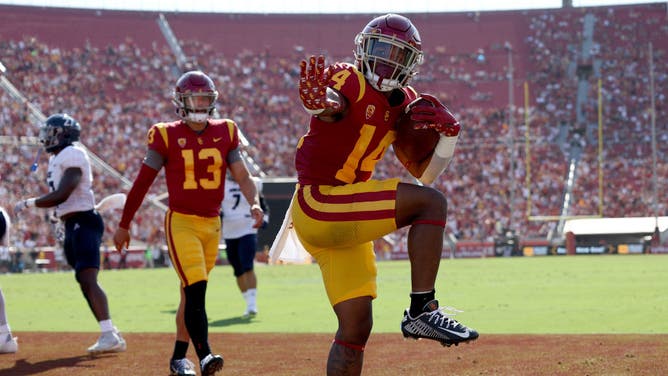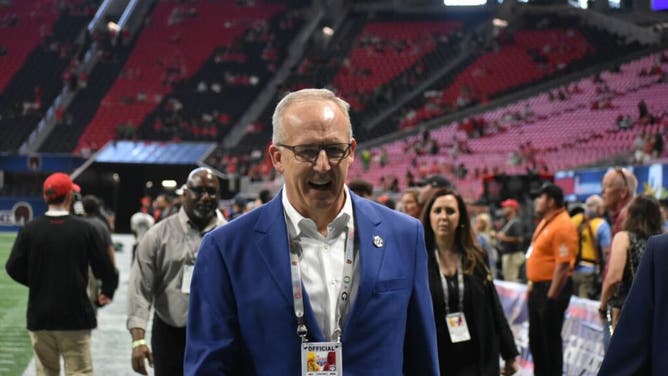SEC Commissioner Greg Sankey Denies ESPN is 'Directing' Conference Realignment
College football realignment is rapidly reshaping the sport's competitive landscape, with huge, historic programs like Texas and Oklahoma moving from the Big 12 to the Greg Sankey-led SEC.
The most recent domino to fall was the shocking announcement that USC and UCLA would be leaving the Pac-12 for the Big 10 in 2024.

LOS ANGELES, CALIFORNIA - SEPTEMBER 03: Raleek Brown #14 of the USC Trojans celebrates his touchdown in front of Caleb Williams #13, to take a 21-7 lead over the Rice Owls during the second quarter at United Airlines Field at the Los Angeles Memorial Coliseum on September 03, 2022 in Los Angeles, California. (Photo by Harry How/Getty Images)
Most of the speculation and analysis surrounding these dramatic shifts has been centered on the idea that major conference television partners were driving much of the movement around the country.
Sankey spoke to the media a few minutes before Georgia's blowout win over Oregon and seemingly threw cold water on those theories, saying that "football needs to be strong nationally," and "that's the opportunity that's afforded" by realignment:
He continued, specifically denying that television networks are "directing" the conferences to pursue additions, saying "ESPN has never said to me, 'Do this or do that.'"
While on its face this denial seems to indicate that television isn't influencing conference moves, it doesn't hold up to much scrutiny.
ESPN or any television partner wouldn't have to directly tell the SEC to add more teams. The conference obviously knows that their media rights are significantly more valuable with Texas and Oklahoma involved than without.
The same goes for the Big 10, who just negotiated a huge, sprawling new media rights deal. Adding Los Angeles through USC and UCLA, the nation's second largest media market, unquestionably helped secure the massive new payday.

Photo by Trey Wallace / OutKick
It simply makes financial sense for the major conferences to add desirable teams. Just like the programs involved realize that they can earn significantly more revenue in their new homes.
ESPN, CBS, or NBC don't have to call Kevin Warren or Greg Sankey to tell them this.
While the networks might not be "directing" realignment, they're most certainly benefitting from it. Everyone's benefitting from it, except the conferences being left behind.